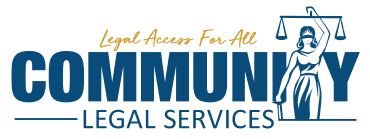Pro Bono Frequently Asked Questions
Pro Bono Frequently Asked Questions

Volunteering with us has never been easier. Below are some of our most asked questions. Do not hesitate to contact us if you have any additional questions. We are here to serve!
FAQs
- Primary malpractice insurance
- CLEs and trainings
- Sample Forms and Pleadings
- Expert staff mentors
- Co-counseling opportunities
- Legal Research support
- Pro Bono time tracking
- Expanded network
- Administrative staff support
- Cost Reimbursement
For every matter you take with us we offer primary malpractice insurance, CLE accredited training, model pleadings and forms, legal advice checklists, cost reimbursements, and much more. We are here to support you every step of the way!
Here are some of the resources we provide when you volunteer with us:
If you are a retired or inactive lawyer, retired judge, current or retired faculty member from an ABA accredited law school, or authorized house counsel certified by the Florida Supreme Court, you may be eligible to volunteer with us as an Emeritus Lawyer. We can help you with your application to the Florida Supreme Court and will support you throughout your engagement with us.
Below are some additional resources to find out more about the details of the program and how to apply:
Florida Bar FAQs: https://www.floridabar.org/the-florida-bar-journal/emeritus-rule-changes-faq/
Florida Bar Rule: https://www-media.floridabar.org/uploads/2018/12/Ch-12-Dec-14-2018-RRTFB.pdf
Florida Supreme Court Form: https://www.floridasupremecourt.org/content/download/243351/file/03-16-2018_Emeritus-Lawyer-Form-Package.pdf
Florida Bar Rule 4-6.1 establishes an aspirational professional responsibility to annually provide twenty (20) hours of pro bono legal services for the poor or contribute $350 to a legal aid organization. The rule also requires that attorneys report their compliance each year.
What Counts as Pro Bono?
Pro bono service is legal assistance provided without charge or expectation of fees at the time of service. Legal services written off as a bad debt or a case in which an attorney cannot collect a fee do not qualify as pro bono.
By handling your pro bono work through CLSMF, your efforts can be directed to the areas most needed. We keep a record of the hours you report, pay for reasonable and necessary litigation costs, and provide malpractice insurance coverage.
Can I get credit for doing more than 20 hours of pro bono legal services in one year?
Yes. The hours in excess of twenty (20) hours may be carried forward and reported for up to two (2) succeeding years.
What is the difference between community service and pro bono service?
Pro bono service involves the provision of free legal services. Attorneys who participate in bar association activities, volunteer to serve on the board of a nonprofit, or serve on a professional association’s board or committee are providing community or public service, unless they provide free legal assistance as part of their activities.
We encourage you to ask for attorneys’ fees. If fees are awarded, you may keep the fees. You can also choose to donate part or all of those fees to Community Legal Services. We will provide you with the necessary tax documentation for your donation.
Contact us and we will complete an intake for the client. If the client falls within our eligibility guidelines, the case can be processed as a pro bono case.
You do not have to pay for expenses related to the case. We will either arrange for payment of expenses or reimburse you. Should you incur any litigation expenses, provide us with an invoice for reimbursement. Any single cost exceeding $75.00 will need prior approval from Community Legal Services.
You may choose to cover any costs associated with the case, rather than seeking reimbursement. Upon request, we will provide you with the necessary tax documentation for your donation.
Before scheduling mediation, you must contact the pro bono coordinator assigned to your case who will attempt to locate a pro bono mediator.
Filing fees, related court costs, and sheriff fees are the client’s responsibility. If the client is unable to pay the filing fees or any associated costs, the client should go to the Clerk of Court’s office and complete the Application for Determination of Civil Indigent Status.
